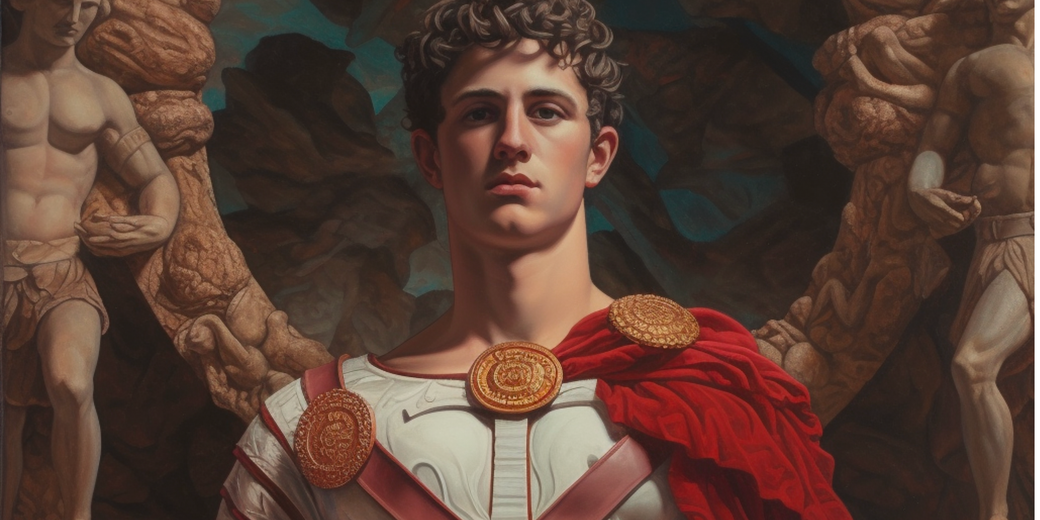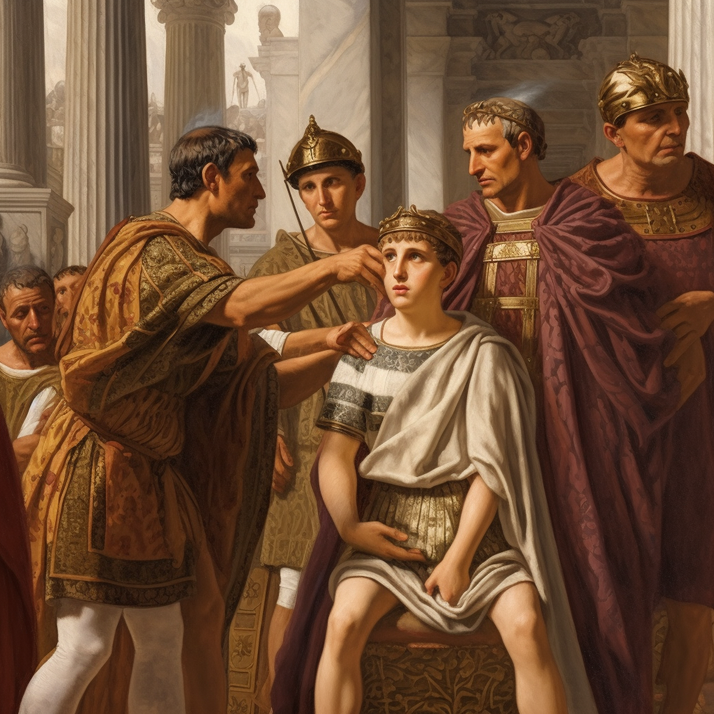The boy emperor who ended an empire: The tragic life of Romulus Augustus

Romulus Augustus, often referred to as the last Western Roman Emperor, remains an enigmatic figure in the annals of history.
Ascending to the throne at a time when the once-mighty Roman Empire was crumbling under the weight of internal strife and external invasions, his brief reign marked the end of an era that spanned over a thousand years.
But who was Romulus Augustus, the boy-emperor who bore the names of Rome's mythical founder and its first emperor?
What circumstances led to his rise and eventual fall?
And how has his story shaped our understanding of the decline and fall of the Western Roman Empire?
Rome in crisis
In the late 5th century AD, the Western Roman Empire was in a state of crisis, struggling with political instability, economic decline, and military pressures from various barbarian tribes.
The Eastern Roman Empire, or Byzantine Empire, had managed to retain more stability during this period, but the Western half was rapidly deteriorating.
In the decades leading up to Romulus Augustus' reign, the Western Roman Empire saw a rapid succession of emperors, with many holding the title for only a few years or even months.
This constant upheaval led to the weakening of the central authority and further fragmentation of the empire.
Meanwhile, barbarian tribes such as the Visigoths, Vandals, and Ostrogoths continued to invade and settle in various parts of the Western Roman Empire, further undermining its territorial integrity.
Before Romulus Augustus' reign, Rome had experienced several devastating sacks that contributed to its decline.
In 410 AD, the Visigoths, led by their King Alaric, breached the city's defenses and plundered Rome, marking the first time in 800 years that the Eternal City had fallen to a foreign enemy.
This event deeply shocked the Roman world and signaled the beginning of the end for the Western Roman Empire.
In 455 AD, the Vandals under their King Genseric carried out another sack, further undermining Rome's stability and weakening its authority.
These sacks of Rome not only exposed the vulnerabilities of the once-great empire but also created an atmosphere of uncertainty and turmoil that played a significant role in shaping the historical context of Romulus Augustus' brief rule.
Early life of the last emperor
Romulus Augustus was the son of Flavius Orestes, a Roman general and politician of Pannonian descent.
Details of his early life remain scarce, but it is known that he was born around 460 AD.
His father, Orestes, had served as a high-ranking military official who had had a distinguished career as a military officer, serving under several Western Roman emperors.
Rise to power
In 475 AD, Orestes was appointed Magister militum by Emperor Julius Nepos, granting him significant power within the imperial hierarchy.
Seizing the opportunity to advance his own interests, Orestes led a revolt against Julius Nepos, who was already struggling to maintain control of the empire amidst internal unrest and external threats.
Julius Nepos was forced to flee to Dalmatia, leaving a power vacuum in Rome.
Instead of claiming the throne for himself, Orestes chose to elevate his young son, Romulus Augustus, to the position of emperor in late 475 AD.
The exact reasons for this decision remain unclear, but it is possible that Orestes sought to wield power from behind the scenes by using his son as a figurehead.
As a result, Romulus Augustus, a teenager with no military or political experience, found himself thrust into a position of immense responsibility, leading an empire on the brink of collapse.

Catastrophic reign
Romulus Augustus' reign as emperor was brief and tumultuous, lasting less than a year from 475 to 476 AD.
Due to his youth and inexperience, he was largely a puppet ruler, with his father Orestes acting as the true power behind the throne.
The Western Roman Empire continued to face numerous challenges during his rule, including ongoing political instability, economic decline, and military threats from barbarian tribes.
While there are few specific details about the policies and decisions implemented during Romulus Augustus' reign, it is clear that he was unable to address the pressing issues facing the empire.
The young emperor's authority was further undermined by the fact that Julius Nepos, the emperor he had replaced, was still alive and considered by some to be the legitimate ruler of the Western Roman Empire.
As Romulus Augustus struggled to maintain control, external threats continued to mount.
The fall of Rome and Romulus Augustus
Romulus Augustus' fall from power was swift and decisive, resulting primarily from the actions of the Germanic chieftain Odoacer.
Odoacer, a skilled military leader, had been commanding a mixed group of Germanic tribes within the Roman army.
However, he grew increasingly discontent with Orestes' refusal to grant his soldiers the land they had been promised.
As a result, Odoacer led a revolt against Orestes and his regime in 476 AD.
Odoacer's forces quickly gained the upper hand, defeating and executing Orestes in late August 476 AD.
Shortly thereafter, on September 4, 476 AD, Odoacer and his troops entered the city of Ravenna, where Romulus Augustus was residing.
The young emperor was taken into custody without significant resistance, and Odoacer subsequently forced him to abdicate the throne.
With Romulus Augustus deposed, Odoacer took the bold step of declaring himself King of Italy, rather than assuming the title of emperor.
He also sent the imperial regalia to the Eastern Roman Emperor Zeno, essentially acknowledging the end of the Western Roman Empire's separate existence.

Legacy and historical significance
While his reign was brief and largely ineffective, his deposition by Odoacer in 476 AD serves as a milestone in European history, representing the definitive collapse of the Western Roman Empire.
Romulus Augustus' reign, overshadowed by the more impactful events leading up to his ascension and the consequences following his abdication, has not left a lasting impact on the Roman Empire's history or the broader course of Western civilization.
However, his story remains an essential part of understanding the decline and fall of the Western Roman Empire, the broader historical context of the period, and the eventual emergence of various post-Roman kingdoms in Western Europe.
What do you need help with?
Download ready-to-use digital learning resources
Copyright © History Skills 2014-2024.
Contact via email
With the exception of links to external sites, some historical sources and extracts from specific publications, all content on this website is copyrighted by History Skills. This content may not be copied, republished or redistributed without written permission from the website creator. Please use the Contact page to obtain relevant permission.





